
Sign in
Don't have an account with us? Sign up using the form below and get some free bonuses!

I recently interviewed Victor Pacini, founder of Childhood Victories, Inc., about childhood sexual abuse, discussing among other things, safe touch versus unsafe touch for children. He's an expert in his field, having turned his own story of sexual abuse into one of hope and encouragement for children across the United States.
However, his message is universal. Children's safety should know no boundaries.
Here's a transcript of our interview.
I've been presenting in schools for close to 20 years, doing programs and creating curriculum. My original work was focused on helping children create goals; they were primarily motivational
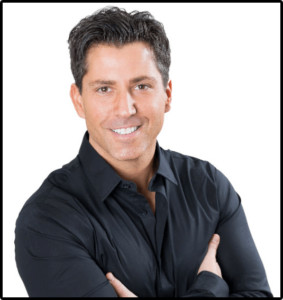
assemblies. I write songs that reinforce the messages. Music is universal and powerful, and it helps me connect with the kids.
As years passed, in 2013, a law was passed in Illinois called Erin's Law. Erin had been abused repeatedly as a little girl. She grew up and got her degree in social work. As she was working in schools, she realized they had fire drills, tornado drills and whatnot, but schools didn't have anything to teach kids about safe touch versus unsafe touch.
So, she went to work and got a law passed that, as a yearly mandate, kids need to learn safe touch and how to stay safe from sexual abuse. It's for all public school children in pre-K through 12th grade.
I got wind of her work. Now, I'd always told a little bit about my own story during my assemblies, but I didn't share much because it wasn't considered "appropriate." This kind of opened a door for me. I didn't want to just tell my story, though -- I want to teach kids they have a voice so they can do something about it if they need help.
As a result, I created a curriculum called Be Seen and Heard© that really took the basic concepts of the law and brought it down to a simple level. I sat down with the law and created curriculum that would be appropriate for each grade level. The message has to be right for each age; you can't talk to a little kid the same way you would an older one.
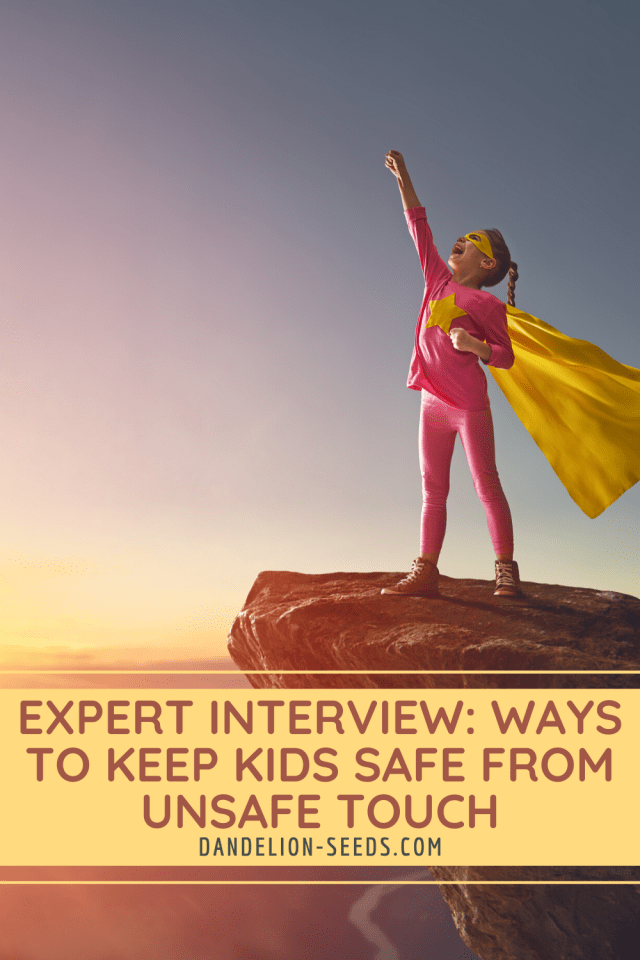
I'm a survivor of sexual abuse. It happened during my performance days when I was around a lot of interesting people. Back then, no one really asked a lot of questions. My parents were very trusting. It was a friend of the family's son who abused me. He was about eight years older than I was. When it was happening, I knew it was very wrong.
People always ask why I didn't stop it.
It's because I was frozen.
After it was over, I remember running to the bathroom and crying and saying, "I want to go home now."
Fortunately for me, it was just a single time. It was a family friend who we weren't close to. My parents didn't force me to see them again.
Right. There are two ways of being victimized: either by someone the child sees only once, it happens, and it's over. Other times, it happens over and over again, and every time the child sees them -- at gatherings or whatever -- it's really triggering for them.
For me, my one-time incident was the beginning of 11 years of complete silence for me.
I came from a family where I was told I should be seen and not heard. That's where I get the name of my program -- Be Seen and Heard©. I had a close family, but my father was a very violent alcoholic. We had a family where we don't talk about our issues; we sweep everything under the carpet.
If we couldn't even talk about my dad, how could I talk about my abuse?
Now, when I'm telling my story, I realize I could be speaking to some eight-year-old child like I was, who's out there in the audience. Maybe that child has been told not to say anything.
The boy who abused me threatened me, as is common. He didn't have to do much. All he had to say is that if my parents found out, they'd be very disappointed in me.
So, I said nothing. I didn't want my parents to be mad at me.
As you know, we never had programs like Be Seen and Heard© at school when I was growing up. No one told us it was okay to talk about these things.
While I was growing up, there were times when I was fine. I was a pretty happy kid. But then, something would trigger me and -- for me, it was every Christmas -- because it had happened around Christmastime. It was probably anxiety. I'd get asthma, and I still get asthma attacks now.
Then, I'd be in high school and someone would mention deviant behavior and I'd get triggered again. You don't know what's going to do it.
So, I kept it quiet until I was 19 and had the courage to tell someone. I was away from college and alone a lot.
I got to the point where I was done letting this define who I was. I didn't want to live in the pain anymore. I realized there was more to my life than feeling sad about this.
I did finally tell someone about it. I couldn't use the words "sexual abuse," though, because I was too ashamed. I found a free counseling office. The counselor helped me so much.
That's where my writing started. Lyrics; poems that turned into songs. From that perspective, everything started to change for me.
Bodily Autonomy vs. Non-Negotiable Tasks for Kids: 7 Important Things You Can Do
For me, healing was a four-step process. 1) I made a decision to get help. 2) I decided to take ownership -- not to blame myself because it's not my fault that I was abused -- but to decide that I wanted to move past it.
He abused my body, but I refuse to let him abuse my life.
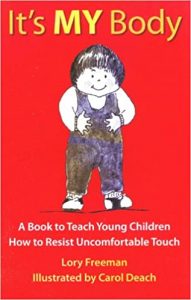
Let's break that down. Abused my body -- that's past tense. I can't change that. I can't go back. As sad as that is, it's HIS. It's done. My life is now; it's tomorrow. He'll never abuse my life again.
From there, 3) I find the opportunity to move on. Then 4) Create. Songs, curriculum, anything at all -- move past it with something positive.
If a child sees a program like mine and then goes home and isn't willing to talk about it -- that can be (but isn't always) a red flag. Look for things like are they not wanting to be around a certain individual in the family. Even if they're long-distance, maybe they just don't want to have a video call with that person. Watch to see if they're avoiding someone.
If they're really young and modeling and saying things from a sexual perspective -- you know if they're modeling, it's something to investigate. They're getting it from someone. It's beyond the Internet or TV -- someone is showing them something they shouldn't be seeing.
If their mood changes -- or not eating -- those are things to watch out for if they've been what I call "inappropriately touched" (for a younger child) or "sexually abused" (for fifth grade and above). Yes, they'll be uncomfortable when you bring it up, but if they're really not open to talking, it might mean there's some sort of shame there.
If there is shame there, it might come from a place of not wanting to disappoint their parents. It's something to investigate.
I have three children and have been doing this program since 2014. For me, I always started conversations with my kids while they were in the bath. I'd tell them this important thing: "No one 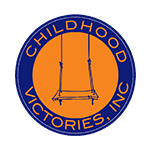 touches your private body parts unless it's to help keep you clean and healthy." I'd repeat that with them at night before they go to bed. Clean means mommy or daddy giving them a bath. Healthy means the doctor giving them a physical.
touches your private body parts unless it's to help keep you clean and healthy." I'd repeat that with them at night before they go to bed. Clean means mommy or daddy giving them a bath. Healthy means the doctor giving them a physical.
I'm not a perfect parent, but I've learned that littler kids will talk to a parent if they feel safe to do so. Older kids are more likely to go to a friend. But I don't care who they talk to -- what matters is that they talk to someone they trust. I call those people trusted heroes, trusted adults, and trusted friends.
Have open communication with your child. The schools also need to be having these conversations.
When I'm doing a parent night, I walk the parents through the program in its entirety. We discuss safe touch versus unsafe touch from the child's perspective. A child might say, "Touching fire is an unsafe touch." That's a different way of thinking than an adult thinks about safe touch.
I have a book I wrote called Be Seen and Heard. It's a very simple book about how a little boy and a little girl are keeping a secret. They were touched inappropriately.
I told a dad at one of my sessions that he could use the book as a follow-up. It doesn't have to be an uncomfortable discussion. It can be a discussion about safe touch -- "How does safe touch make you feel? Good? That's awesome. What might some examples of safe touch be? A hug? A high five? Great! Let's talk about unsafe touch, too." And then the parent can get into that at an age-appropriate level.
I always tell parents to reinforce it during bath time, but it could be anywhere.
I don't use the terms in school -- I talk about "private body parts." I created this from a very conservative perspective. By the time I'm talking about private body parts in their kindergarten, they should know what they are. It's their parents' jobs to teach them that.
Also, do not talk to kids about "good touch" versus "bad touch." Here's why.
If a child is sexually abused, they learn it as a bad touch. But as they get older and they're supposed to be in an appropriate mature relationship, then they same type of touch has a negative connotation for them. That's why we call it "safe touch" and "unsafe touch" instead of "good" and "bad."
Kids model what they know. They have some conversations with their parents -- the more open you can be, the better in the long run. If a child has a similar conversation with a friend, however, not all of it might be appropriate. It's important for kids to know what's acceptable to talk about with parents versus what not to say outside the home. Be aware of how others are taking your queues.
Conversations between kids are usually okay and part of normal development. It depends.
Experimenting -- getting more physical, however -- I question where they're getting that. They're getting it somewhere. No young child knows some of those things without being shown by someone.
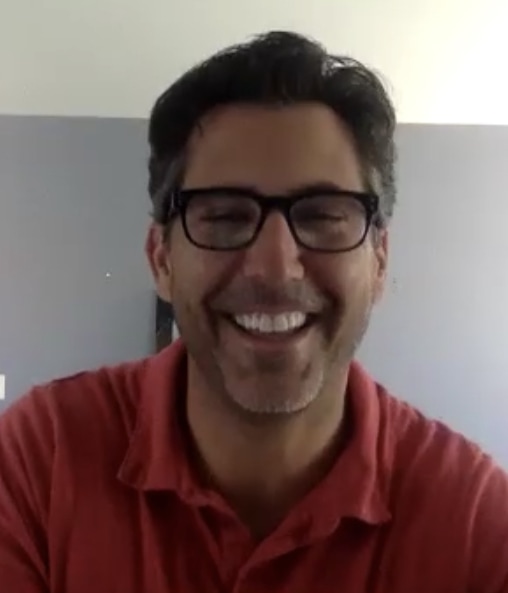
Have a conversation with the family. Depending on their age, the conversation might be different. But adult-to-adult conversation will be very important to learn where it's coming from.
The social worker at the school should be involved. They'll know what to do. They're very powerful in this area. Child Protective Services can also be involved.
By law in Illinois, where I am, the person who first hears about the sexual abuse needs to be the one who speaks directly to law enforcement. They don't want the message to be diluted.
If the child tells a social worker, teacher, or another safe person at school that sexual abuse has happened at home, that child should not go home that evening for his or her safety.
A therapist is a wonderful idea. I'd bring in a psychologist or social worker at the school. There are steps to be followed.
Some parents don't want others to know -- they want to keep the information in the family. However, the goal is to keep the child safe. The child will need access to resources like therapy and the parent should not handle all of that alone.
It's criminal. And it needs to be treated as such. Unfortunately, a lot of parents, for a lot of reasons, have trouble leaving relationships with abusers. They often think things are going to get better.
Before they do anything else, though, they should get the child out of that environment. And then they should report it. And the adult should get the help that they need, too.
The recovery definitely takes time. The child needs to be surrounded by people who love them. For me, I jumped into taking care of myself. Creating my artwork; my music; taking care of my body. I knew I had a safe place to go.
The child needs to know they're an amazing human being that has so much potential; they're not what happened to them. They matter. They're important.
I'm not one to say there's only one answer, but I don't think just by telling my family, it'd have been enough. For me, I don't know that I'd have made it past this without having gone through counseling. I'm a firm believer in talking and sharing with someone who really understands; a neutral party who will have an open mind.
One strategy that can help is to write a letter to the person. They won't actually receive the letter, but writing helps process the feelings and can he part of the healing.
I've learned that we can create the meaning out of any situation. It's not the event that affects us so much -- it's the meaning we put behind it. It all starts with the decision that we don't want this pain to affect us anymore. They can move past it.
Ultimately, my goal is that kids who get the information early enough won't ever find themselves in this situation. We need to prevent this kind of thing from happening. That's the goal. If the conversation has happened, it makes it a lot harder for the abusers to do what they do.
Sarah R. Moore is an internationally published writer and the founder of Dandelion Seeds Positive Parenting. You can follow her on Facebook, Pinterest, and Instagram. She’s currently worldschooling her family. Her glass is half full.
